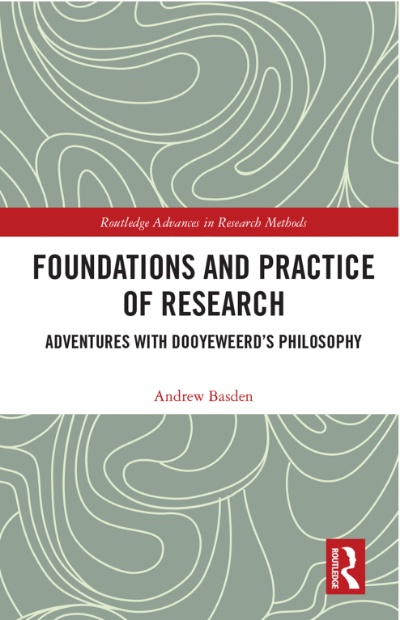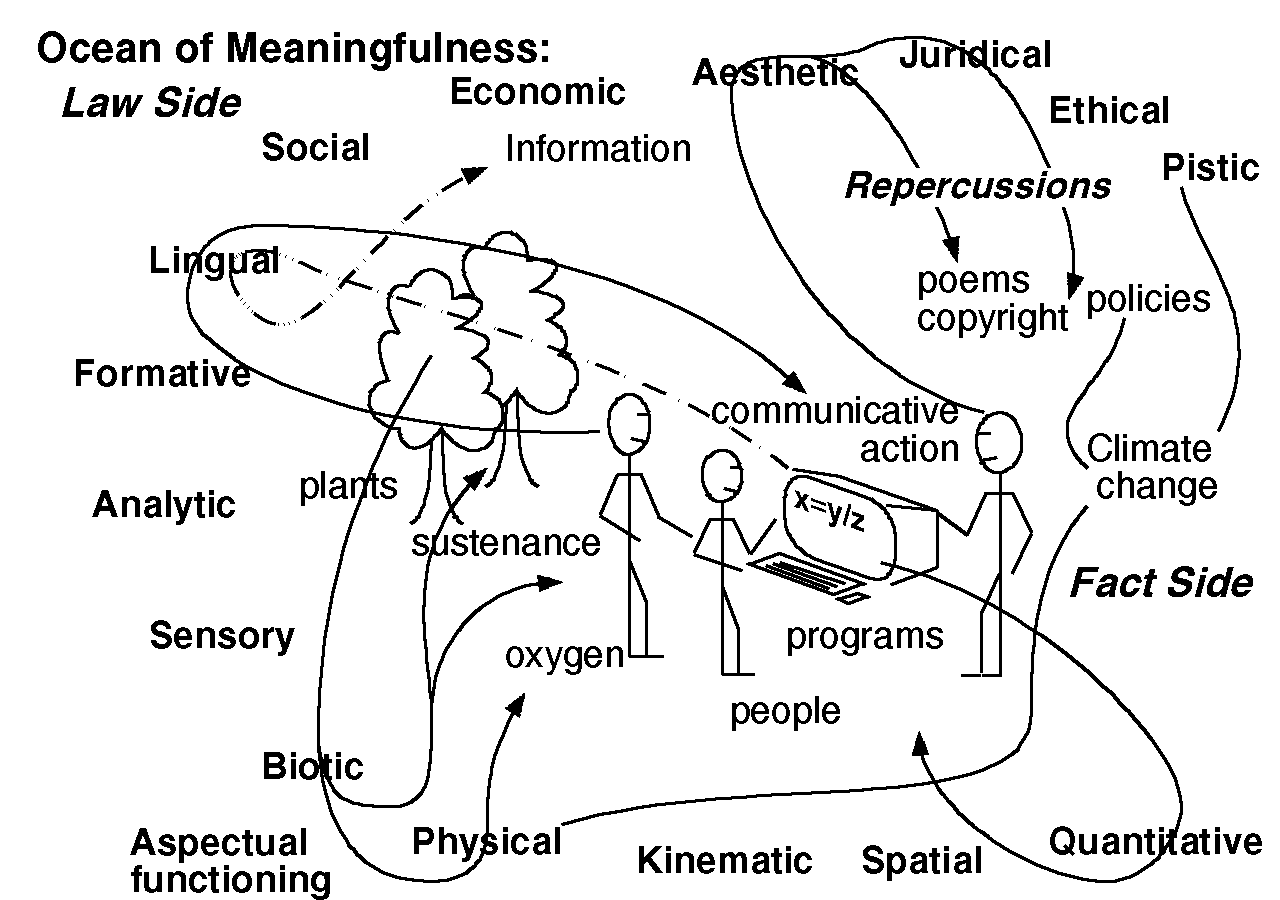
Routledge. Example diagrams:
Towards an holistic understanding of complexity: Figure 4.2 Functioning and being in the ocean of meaningfulness (adapted)
![Figure 11.7, Aspectual profiles for healthcare workers and health record literature (688,975]](f11.7-rd-profile.gif)
Aspects used in gaining an overview of what is meaningful: Figure 11.7. Relative importance of each aspect (%) in work with healthcare record.
|
What is unique about this book? And what is useful?
Foundations and Practice of Research : Adventures with Dooyeweerd's Philosophy
You are invited to join the adventure of exploring how Dooyeweerd's ideas can benefit research.
|
In Routledge's catalogue - to order the book.Now available in Paperback, as well as Hardback and e-book.
| |
What does it tell me, as a researcher?We all know that real-life research is complicated and hides many pitfalls. Chapter 10, which is about the very real human activity of research, helps us understand the complications and how to manage them. Chapter 11, the longest in the book, gives examples of actual research using the framework being explored in the book, Dooyeweerd's philosophy. Both chapters could be read before any others, the only thing you need is a meagre understanding of Dooyeweerd's aspects as fifteen different ways in which reality is meaningful and good, or dysfunctional; these are outlined in Chapter 3 and discussed in Chapter 9, which also explains why we choose Dooyeweerd's suite of aspects over other ones. That this is applicable to all fields - mathematics, natural sciences, psychological and design sciences, social and societal sciences and the humanities - as discussed in Chapter 8. But, in reading Chapters 10 and 11, we might encounter some unconventional ideas and find ourselves challenged by new perspectives. At first we might gloss over them, but would soon want to dig deeper. New perspectives on what research is are set out briefly in Chapter 1 but then explained, discussed and justified in Chapters 6 and 7. We would find ourselves asking, "Where did Dooyeweerd's ideas come from? Where does he fit in?" That is answered in Chapter 5. We might want to understand more deeply the nature of complexity as such; this is discussed, as diversity and coherence, in Chapter 3. The idea of meaningfulness might be new to us; this is discussed in Chapter 4, which also sets out the bulk of Dooyeweerd's philosophy. The relationship between research and everyday experience is discussed in Chapter 2. Some criticisms of Dooyeweerd's ideas are assembled in Chapter 11, so that you may approach Dooyeweerd with an open mind. Throughout the text, you will find cross references to relevant material in other chapters. | |
